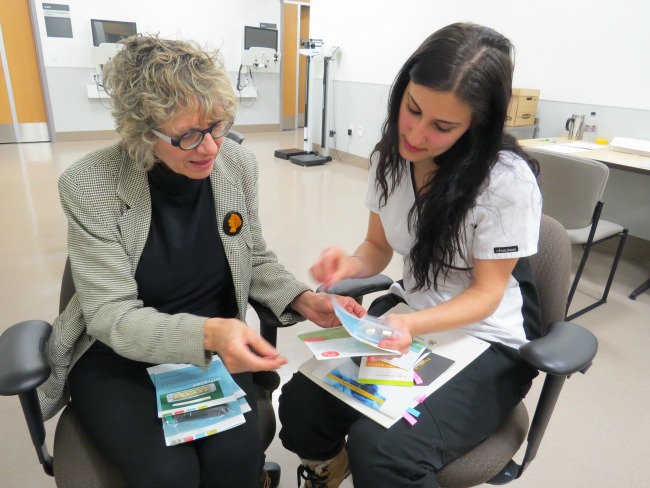
Times change, and so does health science education. Since 1961, the Dental Hygiene program has been a two-year diploma program with students admitted after the completion of required pre-professional coursework. But starting in the Fall 2017, all U of A students admitted to Dental Hygiene will now pursue their studies within a four-year degree stream.
Currently diploma graduates have the option of staying on to pursue one more year of studies to graduate with a bachelor of dental hygiene specialization degree but with the suspension of the diploma program, the School of Dentistry's Dental Hygiene program has evolved the programming to be more student-focused and learner-centred, delivered over a four-year bachelor degree.
"Over the years, the dental hygiene profession has changed considerably. To keep pace, we kept adding courses to the program; however, it stayed the same two-year length," says professor and director of the dental hygiene program Sharon Compton. "This created a very demanding and intense workload for the students. The redistribution of the dental hygiene courses and curriculum will create an education program that best addresses student learning and wellness. Our statistics showed that the majority of students were staying after the diploma program to complete the degree anyway."
This change comes at a time when the U of A School of Dentistry is in the midst of a comprehensive curriculum renewal project. For the first time, the dentistry and dental hygiene curricula will be integrated: students from both programs will learn together in many classroom and clinical situations.
"By bringing these groups together, we will optimize the learning experience for both dentistry and dental hygiene students even further," says Compton. "Also, as we are always looking for ways to better prepare our graduates for delivery of care in diverse populations, our programs will now offer more practicum experiences for students in non-traditional settings."
Examples of non-traditional settings include hospitals, home care, long-term care, assisted living facilities and cancer care clinics. Exposing students to varied community settings supports the goal of improving access to care.
"Alberta has the broadest scope of practice for dental hygiene. We're excited to be a leader in program delivery," Compton adds.
In the Fall 2017 academic year, the diploma will no longer be available and the program will admit its first intake of students for the degree program. Following completion of a pre-professional year of studies, students will enter the dental hygiene degree program and complete three years of study to graduate with a Bachelor of Sciences (Dental Hygiene Specialization).
Currently diploma graduates have the option of staying on to pursue one more year of studies to graduate with a bachelor of dental hygiene specialization degree but with the suspension of the diploma program, the School of Dentistry's Dental Hygiene program has evolved the programming to be more student-focused and learner-centred, delivered over a four-year bachelor degree.
"Over the years, the dental hygiene profession has changed considerably. To keep pace, we kept adding courses to the program; however, it stayed the same two-year length," says professor and director of the dental hygiene program Sharon Compton. "This created a very demanding and intense workload for the students. The redistribution of the dental hygiene courses and curriculum will create an education program that best addresses student learning and wellness. Our statistics showed that the majority of students were staying after the diploma program to complete the degree anyway."
This change comes at a time when the U of A School of Dentistry is in the midst of a comprehensive curriculum renewal project. For the first time, the dentistry and dental hygiene curricula will be integrated: students from both programs will learn together in many classroom and clinical situations.
"By bringing these groups together, we will optimize the learning experience for both dentistry and dental hygiene students even further," says Compton. "Also, as we are always looking for ways to better prepare our graduates for delivery of care in diverse populations, our programs will now offer more practicum experiences for students in non-traditional settings."
Examples of non-traditional settings include hospitals, home care, long-term care, assisted living facilities and cancer care clinics. Exposing students to varied community settings supports the goal of improving access to care.
"Alberta has the broadest scope of practice for dental hygiene. We're excited to be a leader in program delivery," Compton adds.
In the Fall 2017 academic year, the diploma will no longer be available and the program will admit its first intake of students for the degree program. Following completion of a pre-professional year of studies, students will enter the dental hygiene degree program and complete three years of study to graduate with a Bachelor of Sciences (Dental Hygiene Specialization).